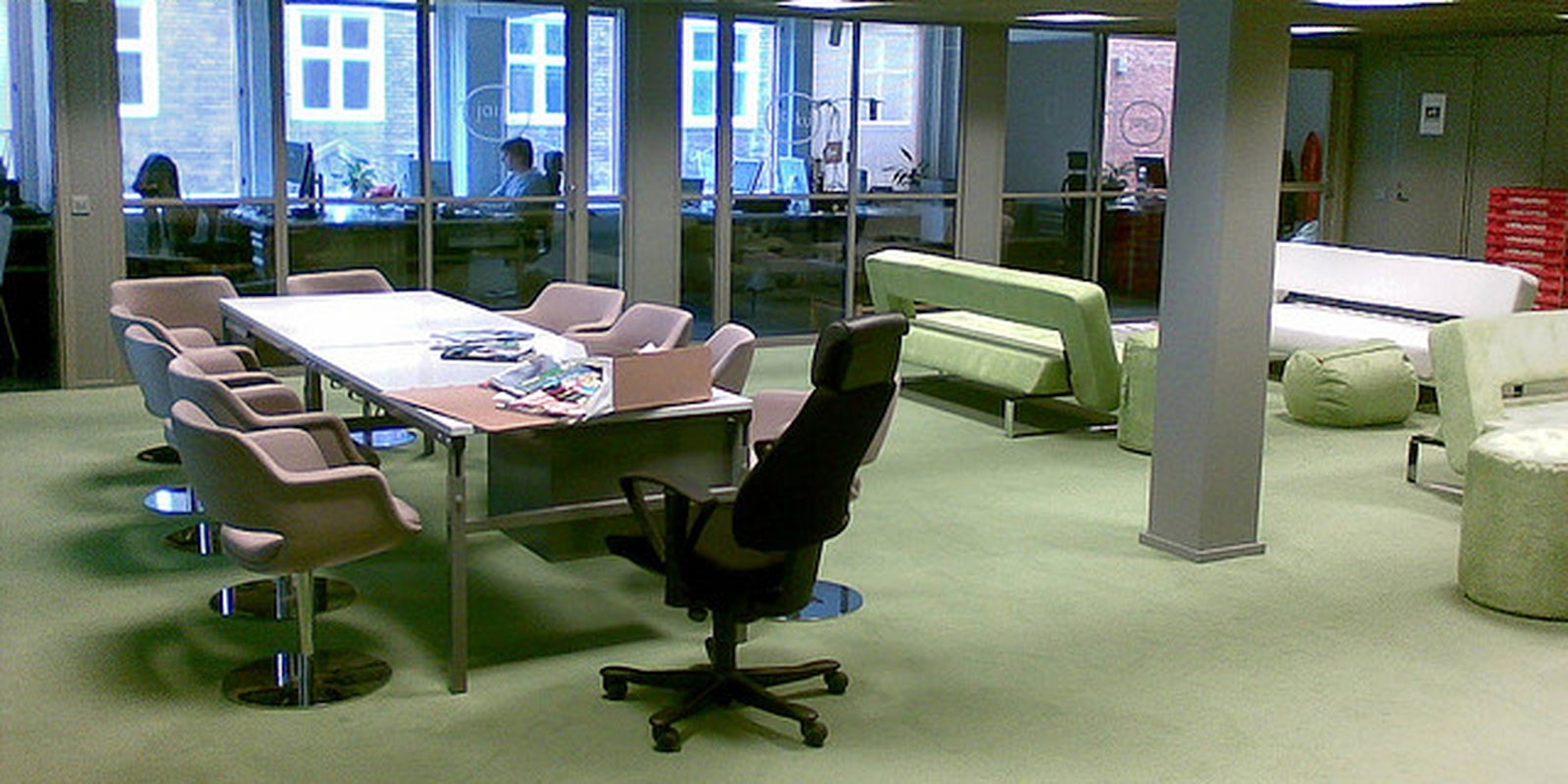In a busy office, it can be difficult to know where everyone is. You can end up checking offices, break rooms, bathrooms, conference rooms all day. But what if there were a check-in solution so you knew where your point person was located? And what if it got a little creepy, and instead of letting you check-in on your own, some tracking devices did this for you?
That’s what Robin, a Boston-based startup, wants to do. The company, still in the process of reaching out to offices across the country, has created a wireless network of sensors that can track where people are within an office. Its ultimate goal is to improve collaboration between employees.
According to its website, inspiration struck when the startup moved to a new office that they had to share with other companies, including a custom-clothing startup and a tech incubator. “Sharing our space gives us the opportunity to learn about other people and businesses, sometimes offering each other solutions to the challenges we’re facing. It’s the true meaning of collaboration,” a blog post from Robin explains.
Robin’s software is currently being used with iBeacons, a product developed by Apple which connects with iPhones and other Bluetooth devices to deliver these signals. With Robin, when someone walks into a room, that person would be able to share pertinent information—such as their Twitter handle or LinkedIn profile—with their coworkers, cutting down the time it might take to reiterate information to everyone.
“People are increasingly expecting their physical workspace to be as connected and interactive as the physical space they encounter in their non-work life,” the company wrote. “For instance, phones are unlocking hotel doors, paying for coffee and starting cars.”
In addition, Robin can be used to keep track of room availability, to see who’s using conference rooms or common spaces to conduct meetings. Users may also use a calendar to book rooms for future use. New York-based media company NewsCorp, owned by Rupert Murdoch, already uses Robin for this purpose.
Users can also see analytics of their office spaces, tracking which spaces are used more than others.
Robin will allow its users to choose which information they share so walking into a room doesn’t necessarily mean sharing every piece of personal information with your coworkers. CEO Sam Dunn compares sharing information on Robin with having a Facebook profile or joining a Facebook group.
Robin says it does not snoop through your Internet search history or monitor how many hours you actually spend on Facebook while at work. But employers would be able to find out where their employees are at any point in time, which could help increase accountability and cut down on superfluous trips to the restroom. Of course, that also means this technology cuts down on your personal privacy; if your office uses Robin, your whereabouts are entirely accounted for; you’re being watched, so keep that break short. There’s no “honor system” with Robin.
Robin addresses the possibility of expanding its products to other places, such as homes or public spaces like restaurants and bars. With different personas, users would be able to customize the information they share with someone in their office versus someone in public.
For now they’re sticking with offices. Robin anticipates making its product available to the public this fall.
UPDATE: CEO Sam Dunn asked that we clarify Robin doesn’t have browser/computer integrations, so it wouldn’t be used to track how much time you spend on certain websites or using certain software.
H/T MIT Technology Review | Photo by Jyri Engestrom/Flickr (CC BY 2.0)


